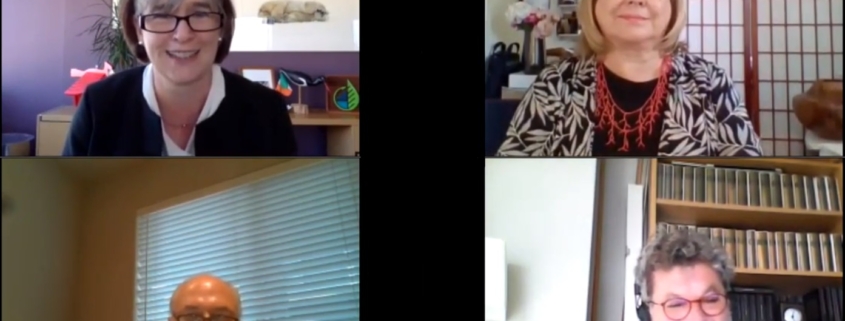Mainstreaming Biodiversity: Challenges and Opportunities — A WHC Connect Recap
“We cannot have a sound economic development without taking biodiversity as the other topic at the center of the journey” — Dominique Debecker, Solvay
WHC Connect 2020 opened with the session Mainstreaming Biodiversity: Challenges and Opportunities, moderated by WHC President Margaret O’Gorman. In the private sector, mainstreaming entails integrating biodiversity across all operations and across all sectors.
The three panelists were Ann Bartuska (Senior Advisor from Resources for the Future), Bill Cobb (Vice President and Chief Sustainability Officer of Freeport-McMoRan and WHC Board Chair) and Dominique Debecker (Deputy Chief Sustainability Officer at Solvay).
The session started with a discussion of the opportunities that Bill and Dominique had identified for mainstreaming biodiversity in their operations. Bill discussed the potential for investor pressure to drive companies’ biodiversity goals and foster a culture of transparency. He drew comparisons to successful investor pressure on corporate climate and water initiatives, concluding that it is time to make biodiversity the “next big thing” in the financial community.
Consumer demand is another common sustainability driver. Solvay’s response to this demand involved identifying four ways in which operations put pressure on biodiversity and then selecting location-appropriate methods to alleviate each factor. Dominique approaches these data-driven solutions as a central part of business, rather than as mere compliance or a decorative “cherry on top” of the company’s output.
Ann discussed the considerations that the private sector should address now as they work toward mainstreaming biodiversity. She recommended that companies take a holistic approach, connecting biodiversity to other environmental matters and to social equity. She advised that conservation efforts should prioritize the well-being of entire habitats.
Early in the Endangered Species Act’s history, Ann explained, conservation efforts commonly focused on individual species (often charismatic ones like the polar bear), particularly those living on public lands. The holistic strategy not only has greater potential for success, but also makes conservation accessible for organizations and individuals, as it inspires them to take action for the species living on their own corporate grounds, and in their own backyards.
The discussion then turned to working biodiversity into supply chain sustainability matters. Bill indicated that this discourse is in an early stage but that there’s been more dialogue between different parts of the supply chain, looking to help each other. He foresees that, “In the next two to five years, this [topic] is going to become a much more significant part of our daily conversations.”
Bill believes that this increased interest could partly be fueled by a desire to remain competitive in Europe, where, as Dominique elaborated, the European Green Deal was recently implemented, and where individuals, political parties and companies have been advocating for higher sustainability standards and robust disclosure frameworks.
Before the session concluded, the conversation segued to the topics of biodiversity metrics, and frameworks like the IPBES. Margaret O’Gorman attributed the success of WHC in part to the simple metrics that the organization imparts to site participants from non-conservation backgrounds. Having accessible metrics is especially crucial given the many references the panelists made to the importance of site-level action.
Due to the value of site-level work, it was critical for corporate locations to continue their conservation work despite the challenges that this year has posed. To support these efforts, WHC produced guidance for Conservation in a Time of Crisis and provisions for WHC Conservation Certification® applications.
During this opening session, WHC presented the new Ibis Award to a program that has demonstrated resiliency of spirit and advancement of conservation despite shutdowns, quarantines and changes in the workplace. This award went to Bacardi Bottling Corporation in Jacksonville, Florida. A full list of 2020 WHC Award recipients and finalists can be found here.
Recordings of Mainstreaming Biodiversity and all other WHC Connect 2020 sessions are now available on the WHC Website.
